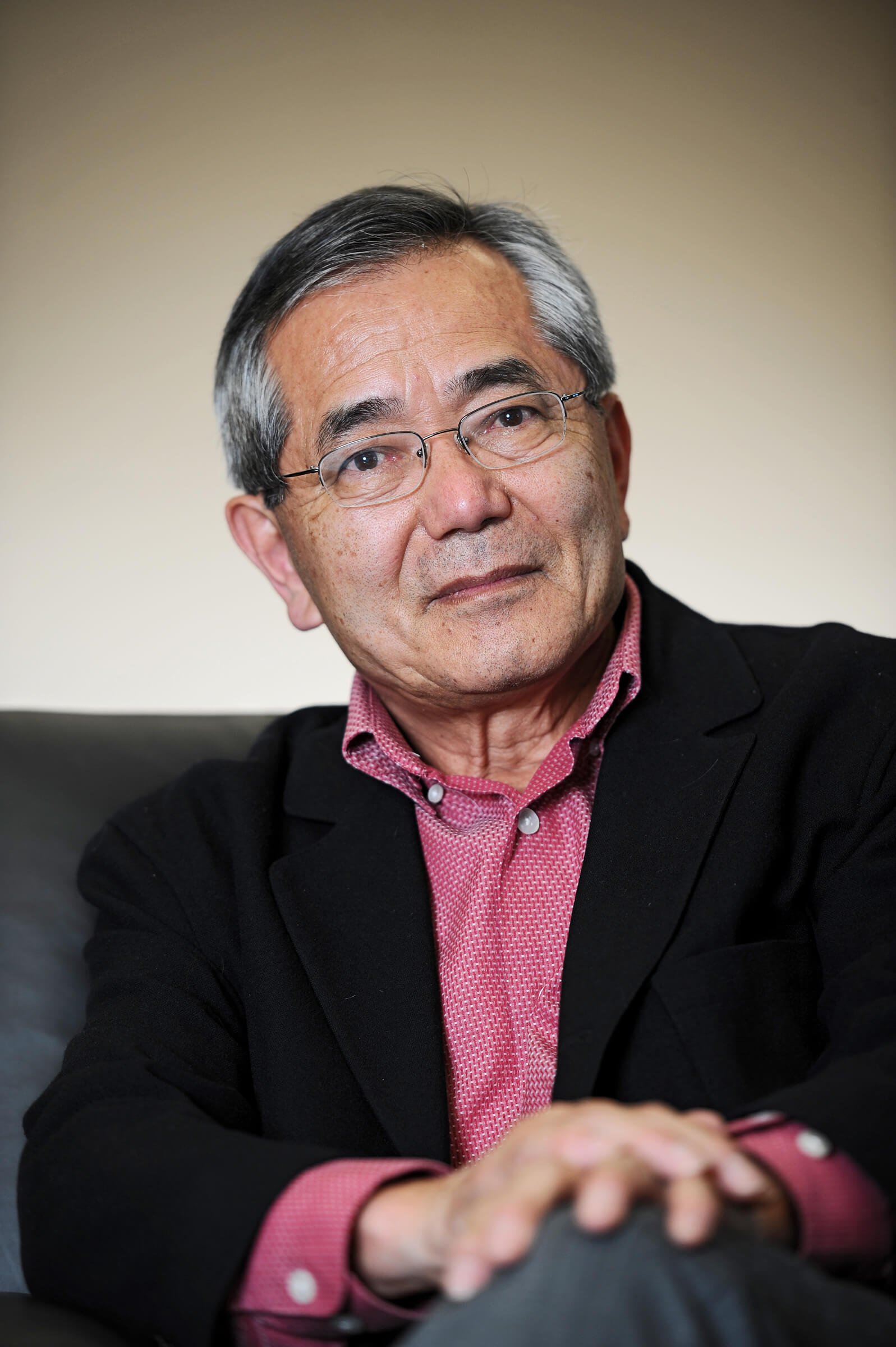Negishi to keynote Purdue Nobel Celebration Symposium; receive state recognition
WEST LAFAYETTE, Ind. — On the day some of this year's Nobel Prize winners are announced, Nobel laureate Ei-ichi Negishi will receive state recognition and discuss the power of chemistry to shape a sustainable world during the keynote event of the Purdue University Nobel Celebration Symposium.
Negishi, Purdue's Herbert C. Brown Distinguished Professor of Chemistry and 2010 winner of the Nobel Prize in chemistry, will present "Magical Power of d-Block Transition Metal Catalysis for a Prosperous and Sustainable World in the 21st Century and Beyond" at 3 p.m. on Oct. 4 in Stewart Center's Fowler Hall.
Negishi has said he sees his future research focus as finding a chemical way to perform photosynthesis that would take the greenhouse gas carbon dioxide and turn it into a useful energy source.
Purdue President France A. Córdova will introduce Negishi, and state Sen. Brandt Hershman will read a resolution honoring Negishi and commemorating the 2010 Nobel Prize in chemistry prior to the keynote presentation.
The event is part of the two-day Purdue Nobel Celebration Symposium that runs Oct. 3-4 in which scientists from the university and throughout the world will celebrate Negishi's achievements and discuss important topics in organic chemistry.
The keynote event is open to the public, but registration is required for the rest of the symposium. There is no fee to attend the symposium, and registration is available at https://www.chem.purdue.edu/Forms/negishi/registration.asp
Paul Shepson, head of the Department of Chemistry, said the Nobel Prize is an international award of the highest honor in science, and it is fitting to have a celebration that is international in scope to honor Negishi.
"The impact of Dr. Negishi's work has already enabled more efficient synthesis of a variety of organic compounds including therapies for cancer, HIV and Alzhiemer's, and it is not surprising that his vision for the future could also make a tremendous impact," he said. "He is calling on those in his field to use the manipulation of molecules to create useful products and provide solutions for the biggest problems we face today."
The symposium mirrors a similar event that was held one year after Purdue's first Nobel Prize winner and Negishi's mentor Herbert C. Brown won the Nobel Prize, he said.
"To have two Nobel Prize winners in the same discipline is a tremendous distinction for the department and clearly establishes Purdue as a leader in molecular science and organic synthetic chemistry," Shepson said. "During this symposium experts will look to the future of the field and examine how creativity on the molecular scale can make a difference."
Speakers include Hisashi Yamamoto of the University of Chicago, James Tour of Rice University, Christophe Copéret of ETH in Zurich, Arun Ghosh and R. Graham Cooks of Purdue, Masakatsu Shibasaki of the Microbial Chemistry Research Foundation in Tokyo, K.C. Nicolaou of The Scripps Research Institute at the University of California in San Diego and Paul Wender of Stanford University. In addition, Jeffrey Roberts, Purdue's Frederick L. Hovde Dean of the College of Science, and Shepson will offer opening remarks on Oct. 3 and Oct. 4, respectively.
Negishi received the Nobel Prize for his work in creating a method to build complex organic molecules necessary for numerous purposes, from pharmaceutical manufacturing to electronics.
The method, called palladium-catalyzed cross coupling, is widely used in industry and research, and it is estimated to be used in more than one-quarter of all chemical reactions in the pharmaceutical industry.
In addition to drugs that include the painkiller naproxen and the cancer treatment taxol, the Negishi reaction has been used to produce fluorescent marking that has been essential for DNA sequencing and in creating materials for thin LED displays.
Negishi currently leads the Negishi-Brown Institute, a new research institute at Purdue focused on catalytic organometallic chemistry.
Negishi grew up in Japan and received a bachelor's degree in organic chemistry from the University of Tokyo in 1958. He moved to the United States in 1960 to attend graduate school at the University of Pennsylvania as a Fulbright-Smith-Mundt scholar, earning a doctorate in organic chemistry in 1963. Negishi came to Purdue in 1966 as a postdoctoral researcher under the late Herbert C. Brown, who won the Nobel Prize in 1979. Negishi went to Syracuse University in 1972, where he was an assistant professor and then an associate professor before returning to Purdue in 1979.
He was appointed the H.C. Brown Distinguished Professor of Chemistry in 1999 and has won various awards, including a Guggenheim Fellowship, the A.R. Day Award, a 1996 Chemical Society of Japan Award, the 1998 American Chemical Society Organometallic Chemistry Award, a 1998 Humboldt Senior Researcher Award and the 2010 American Chemical Society Award for Creative Work in Synthetic Organic Chemistry. He also was given the 2010 Order of Culture, Japan's highest distinction, and named as a Person of Cultural Merit. Negishi has authored more than 400 publications including two books, one of which is the Handbook of Organopalladium Chemistry for Organic Synthesis. Collectively, these publications have been cited more than 20,000 times.
The full symposium schedule is available at https://www.chem.purdue.edu/negishi/symposium.asp
Writer: Elizabeth K. Gardner, 765-494-2081, ekgardner@purdue.edu
Sources: Paul Shepson, 765-494-7441, pshepson@purdue.edu
Steve Scherer, 765-494-5204, scherer@purdue.edu
Related websites:
Related news releases:
Purdue professor wins Nobel Prize in chemistry
Purdue's Nobel laureate to lead new research institute

